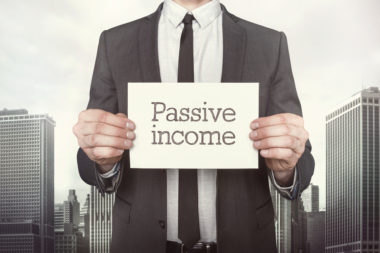A pension plan is a type of retirement account. Although it’s similar to other retirement assets like 401(k)s and IRAs, pensions operate much differently than most common plans.
More popular in the decades leading up to the ’80s, company provided pension plans are becoming rare, and can often only be found in government organizations and large companies. Read on to know what a pension plan is, how it works, and what you can do if you don’t have one. We’ll cover all of it in this article.
Table of Contents
What Is a Pension?
A pension plan, often called a defined benefit plan, is a retirement account usually funded by an employer. If your employer offers a pension plan, they will contribute a determined amount to the account while you are employed so you can withdraw from the account in retirement, after a specific age. Sometimes, you can contribute a percentage of your compensation to the pension.
Benefits of a Pension Plan
Workers who plan to stick with the same company for most (or all) of their career can benefit immensely from a pension plan, since most workers are only eligible for the pension payments after a certain number of years working in the same organization.
Many government employees are also eligible for a pension but enjoy greater flexibility in their eligibility. For example, some state pensions don’t require you to hold the same job in the same department for your whole career, only that you continue working for the state to receive your pension.
Pensions don’t provide the same control over investment options you might have with a 401(k), but they do guaranteed monthly income aside from your own retirement savings.
How Do Pensions Work?
If your employer offers a pension, they will likely use a formula to determine how much you will receive in your monthly payment. The formula usually consists of these factors:
- The number of years you spent working for the company or government
- Your compensation during employment
- Your age
The Department of Labor (DOL) has specific rules for organizations or companies that offer pensions. These rules are to ensure the company puts away enough money to be able to pay out the pension plans every month.
Similarly to 401(k) plans, pensions are generally invested across a variety of index funds or similar accounts, enabling them to appreciate over time as the economy grows. However, this does add the risk of the pension losing value if the economy as a whole (or the companies associated with its investment portfolio) depreciate. Unlike a 401(k), however, individual employees may not have any say in selecting the index fund or investment portfolio in which a pension fund is invested.
How Do You Get a Pension?
Not all employers offer a pension; only government organizations and some large companies will offer them. Some companies use a vesting schedule to determine your pension amount. This means you may have to stick with the employer for a number of years in order to receive the pension. Make sure to check with your employer or human resources to find out if you have a pension and if it is subject to a vesting schedule.
Can a Pension Plan be Canceled?
Unfortunately, your employer does have the option to cancel your pension. If this happens, your account will be frozen and you’ll receive whatever is in there come retirement age, but no more will be contributed.
Are Pensions taxable?
Plan to pay taxes on your pension in retirement. Contributions are usually pre-tax and will be taxed come payment time. Plan accordingly, and have taxes withheld from your pension payment so you don’t have to pay a lump sum every year.
There are a few special circumstances where only part of the payment will be taxed, but this is rare and usually only applies to after-tax contributions or disability payments. We’ll explain further in the next section.
How Pension Income is Taxed
Generally, your entire pension payment will be taxed in retirement, or at the time you receive the payment. However, if you contributed your own after-tax funds to your pension plan, your payment will be partially taxable. The amount you contribute after-tax will not be taxed again when it’s paid out in retirement.
Also, if you receive early payments from your pension plan, there will be an additional 10 percent tax fee unless you qualify for an exception. If the early payment is from your after-tax contribution, the payment will not be subject to the additional tax. Other exceptions apply, please see the IRS tax topics page for more information.
What If My Employer Doesn’t Offer a Pension?
Unfortunately, it’s pretty rare that an employer will offer a pension these days. If your current employer doesn’t offer one, you have a few options.
You could find one of the employers who still offer a pension plan and try to get a position in that company. Most government jobs, state and federal, offer pension plans to employees who have worked for them after a certain number of years.
If you can’t find a job with a company that offers a pension, or you don’t want to leave your current job, you can use a 401(k) to create your own pension. Many employers are offering 401(k)s, and some will even match your monthly contribution up to a certain percentage of your regular compensation. When you retire, you can create your own guaranteed retirement income, like a pension, by purchasing an immediate annuity with your retirement savings from your 401(k), IRA, or other assets.
Whether your employer offers a pension or not, it is a good idea to invest in a Roth IRA because this will give you more flexibility than a pension plan does. The Roth IRA is also taxed at the time of contribution to the account, instead of being taxed in retirement.
If you can get a pension, make sure you know if it’s vetted and any other information that might affect your retirement income. Check with your employer or human resource representative if you have any questions.
Image Source: https://depositphotos.com/





